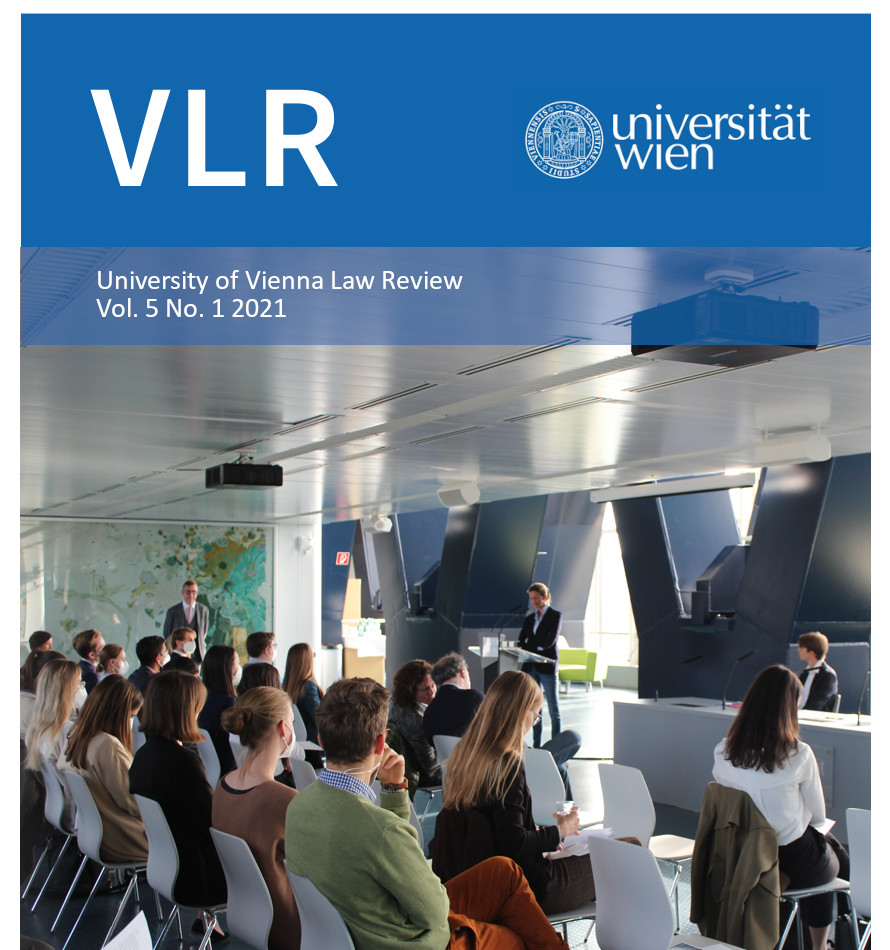The Invention of Economic Jurisprudence
From Jhering to Posner
DOI:
https://doi.org/10.25365/vlr-2021-5-1-82Keywords:
Economic Jurisprudence, Rudolph von Jhering, Friedrich August von Hayek, Richard PosnerAbstract
In the wake of American law & economics, some well accomplished monographs on economic jurisprudence have been written, some of which also include its historical foundations. However, I am not aware of any that attempt to trace the origin of jurisprudence’s economization in modern private legal thought itself and to develop it from there along its own normative claims and intrinsic tensions. This, admittedly in a very abstract way, is the claim to originality of my dissertation project “The invention of economic jurisprudence – From Jhering to Posner” of which this paper shall provide an accentuated account. This requires further substantiation and clarification of the terms and intentions that are at stake here.
By “invention” I mean a multi-stage transformation that takes private law from conceptual rationality and the postulate of freedom and equality to economic logic. Private law thereby becomes, according to my thesis, for itself what it has been in itself. Accordingly, in Savigny's time, autonomous private jurisprudence inspired by Kant and Locke may still have aimed at the establishment of a state-free sphere between the free and the equal, and thus may have functioned as a fundamental rights equivalent. But at the same time, it was already interwoven with economic purposes, with the fulfillment of the needs of “life” and trade, as Jhering, who at that time still thought in terms of legal concepts, put it. By the “postconceptual” Jhering of the 1860s onward and later with Hayek’s theory of law and law & economics, these objectives become clearer and finally emerge as the decisive ones. They lead private law to economic efficiency and maximization as its actual core content.
Downloads
Published
Issue
Section
License
Copyright (c) 2021 Stephan Vesco

This work is licensed under a Creative Commons Attribution-NonCommercial-NoDerivatives 4.0 International License.
All articles are licensed under the Creative Commons License CC BY-NC-ND. A summary of the license terms can be found on the following page:
https://creativecommons.org/licenses/by-nc-nd/4.0/
Authors retain copyright without restrictions.


